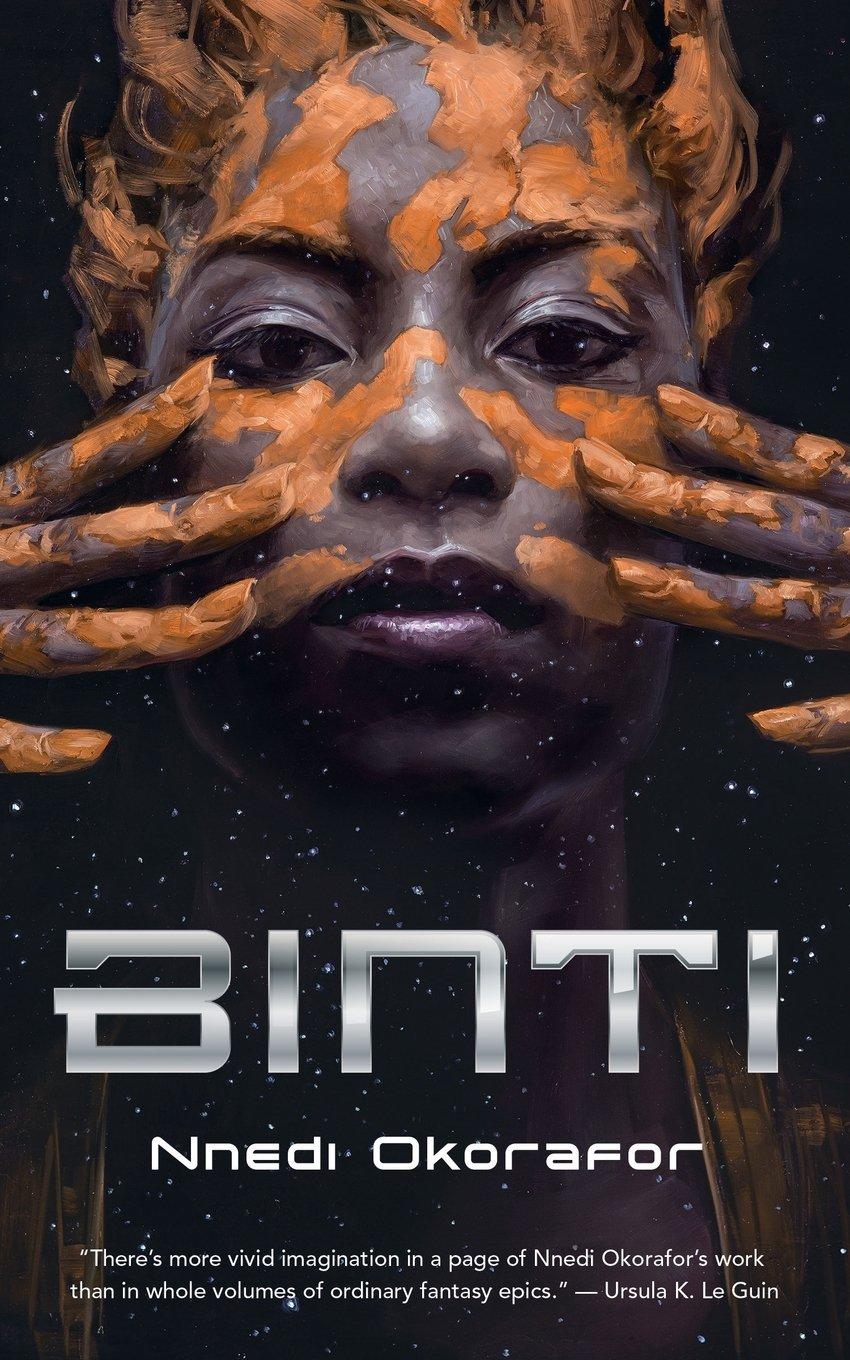This first appeared at Tor.com. It won the Nebula,
NOMMO and Hugo awards and was up for the Locus and was reprinted by Paula Guran, Julie E. Czerneda. It will be produced by Hulu as a series.
Note: I commented on her use and others' uses of “force field” here, which
has more to do with science than the quality of the work.
Summary
 Binti has received a scholarship to go to the prestigious
Oomza University, off-planet. Her family and friends try to discourage her as
this is not the way of the Himba people. She is expected to carry on her father’s
business, but instead a strong desire to learn pulses through Binti, which is
why she applied in secret.
Binti has received a scholarship to go to the prestigious
Oomza University, off-planet. Her family and friends try to discourage her as
this is not the way of the Himba people. She is expected to carry on her father’s
business, but instead a strong desire to learn pulses through Binti, which is
why she applied in secret.
Shortly after she befriends her future colleagues headed to
school with her on the spaceship, the ship is attacked and only Binti holds the
key that help create peace between two long warring peoples. Her life and the
lives of the fellow humans and Meduse—translucent and tentacled aliens.
Commentary with Spoilers
The story is speculatively and culturally rich. The Himba
with their isolated and mystical-scientific ways, the Meduse, the astrolabe,
treeing, the edan. It doesn’t over- or undersaturate the story (although a few readers
new to SF might be put off if they aren’t willing to stick with the
estrangement). There’s nothing simple about these as some speculations grow to
have more significance or unforeseen uses.
Binti is a sufficiently characterized and sympathetic. We
care about her struggles with her family and the Medusae as well as the newness
of the experience of going to university.
The best scenes are surprisingly, intensely and virtuosically
held in a small room as Binti negotiates with aliens who have just wiped out the ship (as far as she knows), as she navigates her edan which becomes no longer an ancient tool, and as she consumes the last of her food.
Plot questions linger. For instance, if the
Medusae are such a threat, why aren’t they anticipated? Why don’t Khoush see
their enemies coming? Why isn’t there more grief over the loss of so many? Does
the University not care? Why isn’t there at least a little more resistance to
peace due to this? Binti is supposed to be a harmonizer, but it isn’t clear
what she has done personally to facilitate this peace.
The telling is spare, which is smooth and largely pleasurable,
but at times too spare. Sometimes she notices things (like food when the Medusae
are their most threatening), and sometimes she doesn’t when she should. Being
stuck in her room for a long period should cause her to study environs a little
more closely. The Himba may not be good observers, but with her intelligence and
the newness of her world, she should probably be engaging a little more with
what she interacts with. This doesn’t mean tedious or pointless details but simply
more.
The prose style has a curious threading where it comes
around to the same thing and treats it again and again--for instance, the death
of her classmates and her interactions with family and friends prior to
leaving. The retreading of the same events would make sense in the case PTSD,
yet the importance of her new friends’ deaths seems to disappear, so she seems
to have recovered quickly, which might make sense depending on her personality,
culture, and perhaps more tentative or superficial relationships with her new friends.
It may be that these humans have less concern about lives lost in the past (vs. lives that could be lost),
even if relatively recent.
Some of these plot questions and stylistic choices may be answered if this were cut from
what was always intended as a novel. The opening and ending suggest as much
since they don’t contribute to furthering the core of the novella but may unpack within the novel. The narrative is compelling enough to read further: to deepen
our understanding of Binti, her people, the Khoush, the Medusae, treeing, and
the edan (not to mention whatever the university has to teach).

No comments:
Post a Comment